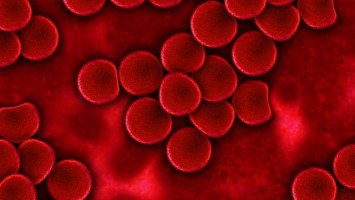
The first CAR T cell therapy targeting the B cell-activating factor receptor on cancerous cells eradicated CD19-targeted therapy-resistant human leukaemia and lymphoma cells in animal models, according to City of Hope research published in Science Translational Medicine.
The new therapy will be used in a clinical trial next year for patients who relapsed after CD19 immunotherapy treatments and may potentially be used as a first-line of CAR T cell therapy treatment.
An estimated 20 to 30% of leukaemia and lymphoma patients who achieve remission after receiving CD19 CAR T therapy will relapse after a few years.
The effectiveness of those CAR T cells, which target the CD19 protein on cancerous B cells, starts to wear off and the cancer returns.
But there new hope for those patients who relapse after receiving axicabtagene ciloleucel or tisagenlecleucel, the Food and Drug Administration-approved CD19 CAR T cell therapies, as well as another type of CD19-targeted immunotherapy, blinatumomab.
"One major obstacle to current CAR T therapy is that in up to a third of these patients, the tumour is actually smart and comes back because it has learned how to no longer express the target that's recognised by the original immunotherapy," said Larry Kwak, M.D., Ph.D., vice president and deputy director of City of Hope's comprehensive cancer center and the study's principal author, who leads the research with Hong Qin, Ph.D., a research professor in City of Hope's Department of Hematology & Hematopoietic Cell Transplantation.
He adds, "To combat that, City of Hope research has found a new, and potentially more effective, target for CAR T cell therapy against B cell leukemias and lymphomas. We plan to open a clinical trial next year using the BAFF-R CAR T cell therapy."
"This new treatment could change the face of leukaemia and lymphoma treatment in the U.S. and worldwide," added Kwak, the Dr. Michael Friedman Professor in Translational Medicine.
CAR T cell therapy involves taking a patient's T cells from the bloodstream.
The immune cells are then genetically engineered in a laboratory to recognise and attack a specific cancer-associated protein, such as BAFF-R, and reintroduced into the patient's bloodstream, where they get to work destroying tumour cells.
For this study, animal models with CD19 therapy-resistant human-tumours (including Burkitt, mantel cell, and other non-Hodgkin's lymphoma subtypes and acute lymphoblastic leukaemia) received BAFF-R CAR T therapy.
Remarkable tumour regression and prolonged survival were observed after treatment with these CAR T cells.
In animal models with human Burkitt lymphoma, BAFF-R CAR T therapy achieved a cure (complete tumour regression with 100% long-term survival) after a single treatment.
For another part of the study, the animal models had a mixed population of CD19-positive and negative human tumours.
They then received either CD19 CAR T cell therapy or BAFF-R CAR T cell therapy; the BAFF-R CAR T cells were able to eradicate both tumour populations while treatment failed in those receiving CD19 CAR T cells.
Tumour samples from patients who relapsed after receiving CD19-targeted immunotherapy (blinatumomab) were also investigated.
The study demonstrated that BAFF-R CAR T cells were consistently active against these tumours, whereas CD19 CAR T cells had greatly diminished responses to each patient's relapse tumour compared to the pre-therapy samples.
"We did a head-to-head comparison of two new therapies, and our data showed that our BAFF-R CAR T therapy actually did a better job than FDA-approved CD19 CAR T therapies," Qin said. "If these results continue, we will pursue BAFF-R CAR T therapy as a kind of frontline CAR T therapy treatment for lymphoma and leukaemia patients."
City of Hope plans to open a clinical trial next year using the BAFF-R CAR T cell therapy for B cell leukaemia and lymphoma patients who have relapsed after receiving CD19 CAR T cell therapies or blinatumomab.
When the BAFF-R CAR T trial opens, City of Hope will manufacture the CAR T cells using in its own facility, the Cellular Therapy Production Center.
This process includes a critical step: collecting patients' T cells and genetically engineering the T cells with viruses also produced at a City of Hope GMP facility, the Center for Biomedicine & Genetics.
These two facilities, coupled with the Chemical GMP Synthesis Facility, make City of Hope one of the few cancer centres in the world with the ability to produce GMP cellular, genetic and drug-based therapies for its patients.
Source: City of Hope
We are an independent charity and are not backed by a large company or society. We raise every penny ourselves to improve the standards of cancer care through education. You can help us continue our work to address inequalities in cancer care by making a donation.
Any donation, however small, contributes directly towards the costs of creating and sharing free oncology education.
Together we can get better outcomes for patients by tackling global inequalities in access to the results of cancer research.
Thank you for your support.